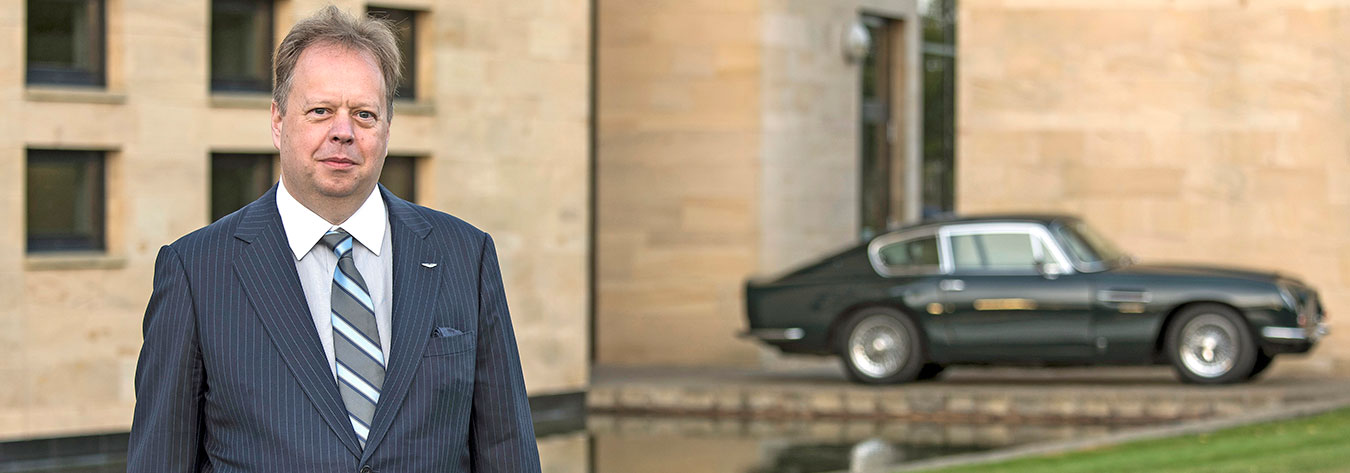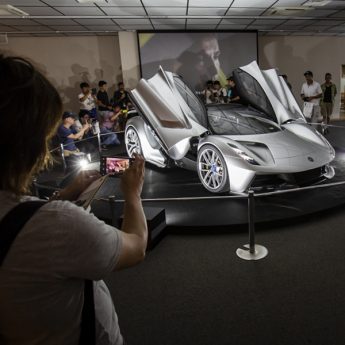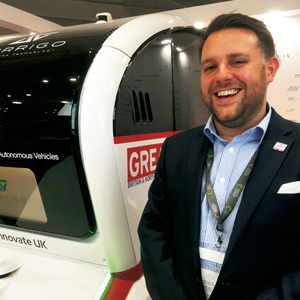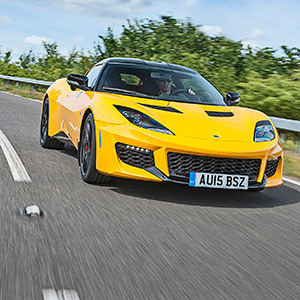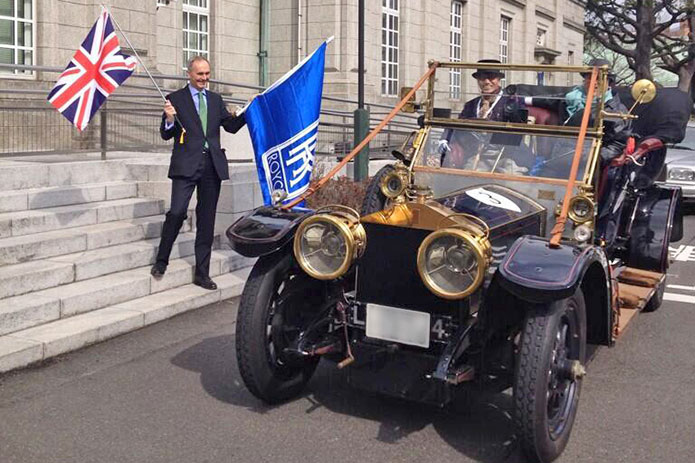- Iconic British firm looks to Japan for business inspiration
- New services, approach to focus on putting customers first
- In 102 years, Aston Martin has made just 70,000 cars
Aston Martin, that quintessentially British luxury sports car, is having omotenashi injected into its DNA thanks to a new chief executive who spent 13 years in this country.
Dr Andy Palmer was appointed chief executive of Aston Martin Lagonda Ltd. in late 2014, after 24 years working for Nissan Motor Corporation in both the UK and Japan. He has swiftly set about building on the brand’s impressive reputation for quality and luxury from nose to tail—a reputation that also made it the vehicle of choice for Britain’s most famous secret agent.
Key to that ambition is the commitment for “entertaining customers wholeheartedly” that Japan has elevated to an art form.
“My relationship with Japan has given me a great education in terms of putting the customer first and putting the customer above everything else”, said Palmer, who was in Tokyo in October to attend the Tokyo Motor Show.
“The key principle that I fully came to understand and appreciate during my time [in Japan] is … the needs of the customer. So, every time we design a new car, we now start with who the customer is.
“We know that luxury customers demand not only the finest in quality and craftsmanship from the product, but they also demand that same quality from the experience and the relationship with the luxury brand that they buy into. In that respect, Aston Martin as a company has looked to Japan for its inspiration”, he said.
“Specifically, that means that we try very hard to adopt the principles of omotenashi, which is to truly welcome our owners and would-be owners into our world”, he added. “Omotenashi is a profound, first-class concept of unique hospitality with customer satisfaction at its core.
“And perhaps, more than any other car brand, Aston Martin is extremely well positioned to not simply sell superb luxury sports cars but, in addition, offer a truly special experience”.
Palmer used his visit to Tokyo to announce the launch of Aston Martin Secret Service. It is a bespoke programme inspired by omotenashi that provides a dedicated VIP concierge service for Aston Martin owners, as well as a number of additional money-can’t-buy experiences. These include track days in Japan designed to give drivers a true understanding of what an Aston Martin is capable of, and design workshops with the firm’s chief creative officer.
The programme has been launched in Japan solely for owners of the Aston Martin Vanquish flagship model, but Palmer believes it has relevance for the firm’s customers around the world. It will “become the new global standard for customer care”, he said.
And all that, of course, is on top of a range of cars that turns heads. Palmer said his task is to turn heads in more markets outside the UK.
“I think it would be almost inconceivable to speak to somebody in the UK who doesn’t know Aston Martin”, he said. “It’s as tangible as a London taxi or a red bus or telephone box, and an intrinsic part of our history. However, as we move overseas, it gets a little bit less well known.
“We need to take this great, iconic brand that is probably best known for racing or the car of James Bond, and we need to improve the familiarity and explain that 102-year history of craftsmanship”, he added.
In all that time, Aston Martin has made just 70,000 cars—a number that Nissan’s plant in Sunderland, in comparison, turns out in a couple of weeks—and only half of those have been exported. A mere 2,000 cars have been exported to the up-and-coming BRIC nations of Brazil, Russia, India and China, underlining the potential that still exists for the firm.
“We need to nurture new innovation in technologies that embody future Aston Martin products but, at the same time, preserve the magic that lies behind the brand”, Palmer said. “So, as I lead the company into its second century, I am solely focused on ensuring that Aston Martin becomes sustainable and relevant in the long term.
“Aston Martins always need to be rare and they always need to be exclusive”, he added. “However, we believe we can grow carefully and organically by making this fantastically strong brand relevant to buyers who would never normally have considered buying an Aston Martin”.
